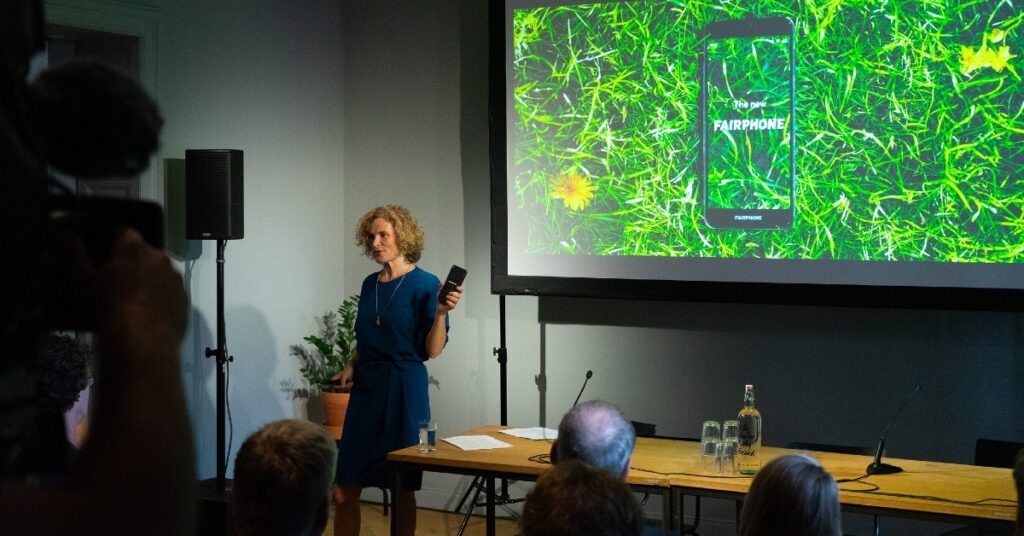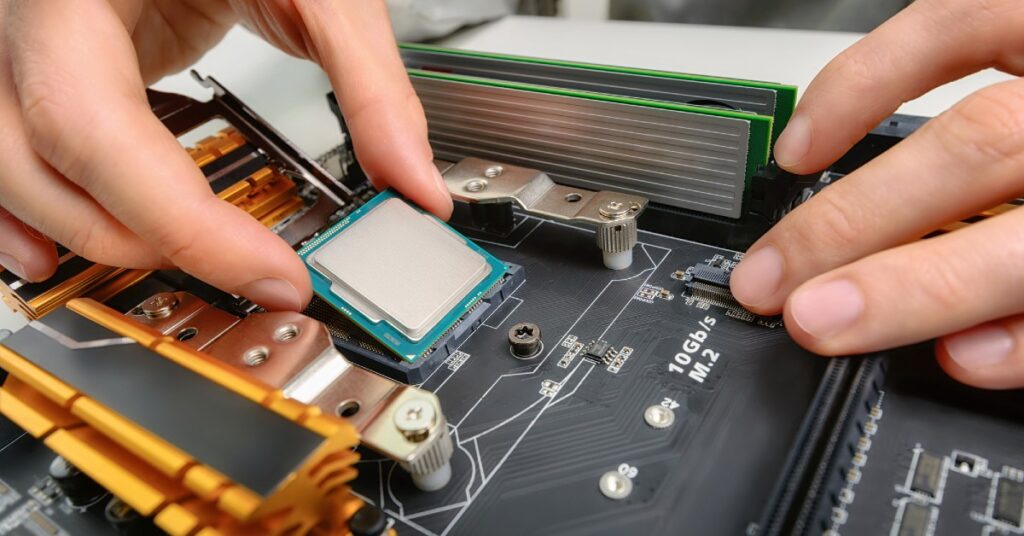[ad_1]
ASML is the pioneer of EUV Lithography needed to make advanced processors | Image Credit: ASML
“ASML is the most important tech company you’ve never heard of.”
This headline about ASML, a Veldhoven-based Dutch supplier of semiconductor manufacturing equipment and lithography systems, dominated the news in late 2021 and 2022 when the US decided to restrict China from access to important semiconductor supply chains.
Without its extreme ultraviolet lithography (EUV) machines, it is almost impossible to make advanced processors that go into smartphones, data centres, personal computers, laptops, cars, and much more.
The meteoric rise of the 37-year-old company, which began as a joint venture between Advanced Semiconductor Materials International (ASMI) and Philips, and became independent in 1988, is unlike any seen in the semiconductor industry.
With a market cap of €228.42B and machines which cost approximately $140M each, it is difficult to imagine transistors, building blocks of modern electronics, being formed without ASML.
![]()
Nearly four decades after its inception, ASML serves as the beacon of hardware engineering in the Netherlands, a country that has become the hotbed for software and fintech innovation.
As Europe’s fastest growing hub for tech innovation, Amsterdam and the Netherlands may not be home to many smartphone and electronics companies but it is building the ecosystem that could become home to the future of computing, including hardware startups in the field of quantum computing, robotics, and other transversal technologies.
Amsterdam’s opportunity to become a hardware hub

Amsterdam might be home to the likes of Adyen, Mollie, WeTransfer, Swapfiets, and others, but hardware is not the most popular industry but it offers an environment where all types of startups can thrive.
Fairphone, an Amsterdam-based electronics manufacturer of sustainable smartphones, sees the Dutch capital as the perfect location for its business.
A spokesperson for Fairphone, says Amsterdam makes it easier for international investors to find the company and “managed to attract funding locally via one of our shareholders, PDENH, representing the province of North-Holland.”
She adds that the presence of investors like DOEN, ABN AMRO, Invest-NL, and crowdfunding platforms like OnePlanetCrowd in Amsterdam, makes the environment conducive to run any business, including a hardware startup.
Boy de Jonge, an analyst at FORWARD.one, agrees. “Amsterdam is seen as an attractive launch bed for startups in terms of accessibility to funding and accelerators,” de Jonge says.
He, however, sees Delft and Eindhoven as the powerhouses for Dutch hardware startups due to their proximity to technical universities.
Pierre van den Oord, CMO of LOQED, also does not see Amsterdam as the hub for Dutch hardware startups. He believes it is not easy to build a hardware company in North Holland.
“Hardware isn’t really as much in fashion in North-Holland as it is in and around Delft, Eindhoven and Enschede,” he says.
By taking part in YES!Delft accelerator programme and renting a shared workshop in Leiden, Pierre says he was able to get started with LOQED.
He does acknowledge the vibrancy of Amsterdam and the easier access to talented software developers in the city.
Having recently moved LOQED to Maarssen, Pierre still does not see Amsterdam becoming a hub for hardware startups.
When prodded on what could bring about the change, Boy says Amsterdam is now home to promising technologies in human health and life sciences.
However, he wants to see more initiatives like VU StartHub for Amsterdam to become a launch bed for hardware startups. “There’s still a lot of work to do,” he says.
Challenges aplenty

For hardware startups, one of the important phases is rapid prototyping and validation of their design or concept.
Though there is an option for rapid prototyping and testing in North Holland, Pierre feels rapid prototyping is virtually always dependent on other markets.
Since LOQED had a different approach for electronics, plastics and metal used in its smart lock, they had to get the circuit boards needed from Germany.
However, he says they would have ordered the circuit boards from China if they could spare about a week.
“Those lead times and prices are very hard to beat,” he says.
For any company building a hardware product, the central question is sourcing all the components and it is hard to find a place other than China where these components are affordable.
Even Apple is now struggling to diversify its iPhone manufacturing outside of China because of lead times, access to worker pool, and ease of operation.
However, Pierre confirms that most of the 3D printing of the prototypes they did themselves while everything else came from Shapeways in Eindhoven for their pilot series.
Despite communication challenges with Chinese manufacturers, LOQED was able to convince them to go through the iterations needed for their product.
For Fairphone, the spokesperson says the challenge was proving that it is possible to make a phone that cares about people and the planet while being profitable.
“This goes against the make-use-dispose attitude that is so prominent in the industry to this day,” she adds.
Piet Hein van Dam, CEO and founder of Clear, faced a completely different challenge.
Instead of building a new sensor product, they used an existing product and built a clever application on top of it.
With a blood glucose sensor easily available in the market, Clear figured out a way to understand the cause of peak in blood glucose and thus eliminate that food from diet.
“So, we re-engineered the application of the original hardware, from medication to prevention,” he explains.
Circular by design
The Netherlands has become the hotbed for building and deploying circular solutions that pave the way for a sustainable world.
For hardware startups in the Netherlands, the idea of being circular is not an afterthought.
Even in the smartphone industry, where demand outweighs the supply, Fairphone sees a circular economy to be a distant goal.
“In a perfect world, we would indeed be truly circular – meeting our demand by using, reusing and recycling materials,” says the spokesperson.
The bigger challenge is the need to mine for precious metals and the critical issues like challenging working conditions and child labour associated with it.
“However, when managed well, mining can be done sustainably and function as a strong catalyst for local development,” she says.
One of the ways that Fairphone is trying to reduce its need for materials is by keeping its technology relevant for years to come.
It offers guaranteed software support to Fairphone 4 users until the end of 2025 and the spokesperson adds they aim to extend this even further, until the end of 2027.
At a time when consumers were upgrading to a new smartphone every year or once every two years, Fairphone made the idea of longer shelf life popular.
Its ability to extend the life of its technology and design that was easy to repair did breathe a fresh life in an otherwise use and dump lifestyle of a smartphone user.
Now with regulations such as right to repair being passed around the world, more smartphone makers are not only extending support but are kind of moving away from the tradition of annual refresh for their devices.
Fairphone pioneered this idea of a smartphone being responsibly made and sustainable and now everyone seems to be following suit and it couldn’t have been possible without its Dutch origin.
Local manufacturing ecosystem
One of the biggest challenges rising out of the COVID-19 pandemic is the fractured global supply chain.
A number of companies and nation states have realised their over dependence on some countries for supply chain needs and there is now a major force behind decentralisation of supply chain.
In the face of ongoing geopolitical tensions, the Netherlands could lead Europe’s vision for a local supply chain ecosystem. However, not everyone sees this coming to fruition.
“I think it would be very difficult, and also not very smart, to try to build an all-encompassing manufacturing ecosystem within The Netherlands alone,” says Pierre.
He thinks it would be smart to leverage the different strengths of European countries and build an European ecosystem instead. Such an arrangement would also result in a stronger European bloc and increased power on the global stage.
Boy says the presence of ASML and Philips makes the Netherlands home to a large maritime industry and a well developed manufacturing ecosystem.
“Building a local manufacturing ecosystem in the Netherlands is not trivial for a small country,” he says.
However, he thinks that the focus should be to support future ecosystems like photonics and quantum rather than proven technologies.
The spokesperson for Fairphone does not see China being replaced from its role as a major player in the supply chain and believes it will continue to play a big role for the foreseeable future.
She adds, “In the current status quo, even if we moved production from China elsewhere, most components would still come from China. Therefore we would not make more impact, and it would only result in a higher carbon footprint.”
New age hardware startups take shape
While the Netherlands may have missed the boat on computing change from PCs to mobile, it certainly doesn’t want to miss out on quantum computing.
The presence of companies like ASML and Philips makes the Netherlands a strong player in the field of optics, photonics, life sciences, and biosensing. A lot of research and development is being done in these fields.
“The government is an important driver of this emerging ecosystem and has been actively supporting companies due to grants and backing various initiatives like PhotonDelta, also to keep these vital technologies within the Netherlands,” says Boy de Jonge.
We are at an inflection point when it comes to mobile computing and the future interface of devices could be radically different.
In the Netherlands, the seeds are being sown to support those enterprises by catering to demand for products and solutions in the field of optics and biosensing.
One of the areas where the Netherlands is already making headwinds is quantum computing. According to a survey from Sifted, the Netherlands is home to 15 quantum startups and is behind only the UK and Germany.
With the introduction of funds like QDNL Participations fund, the country is creating an opportunity for Dutch startups to not only pioneer quantum software but also quantum hardware.
“The next thing that is important to us is somewhat different compared to software startups, where hardware startups can have a clear uniqueness and can be protected by patents and know-how. And of course a big and global market is necessary to create a growth potential,” says Boy de Jonge of FORWARD.one, which has backed hardware startups in the Netherlands.
Your next smartphone, PC or wireless earbuds may not be made in the Netherlands but the country is acutely aware of its hardware ambitions.
With 21 investors investing in hardware startups in the Netherlands, according to Startup Fountain, the country is finally covering the bridge from a pre-seed investment to scaleup investment.
With sustainability baked into anything and everything that Dutch startups do, the Netherlands and Amsterdam could pioneer a new hardware startup ecosystem that transverses new technologies like AI, robotics, quantum computing, life sciences, and biomedical sciences.
[ad_2]
Source link
